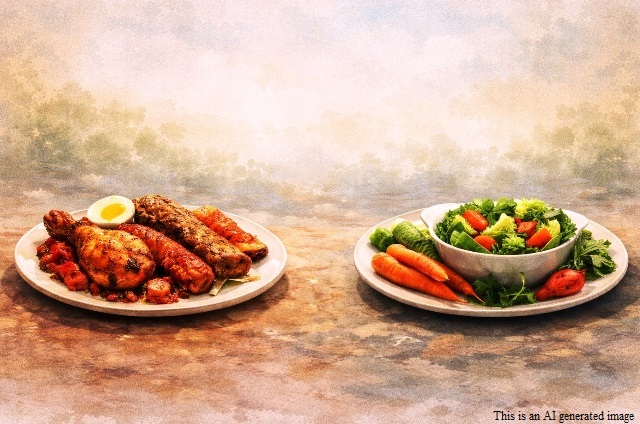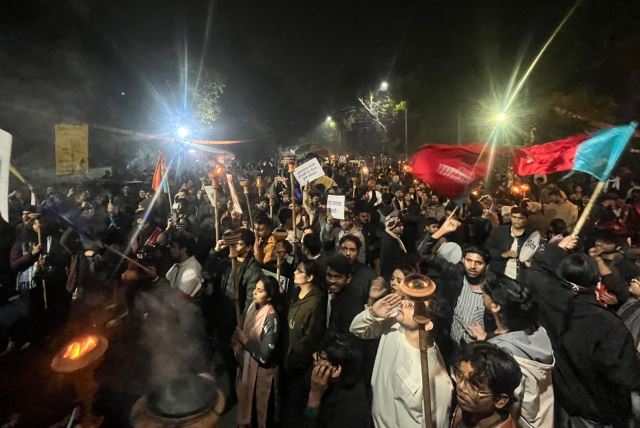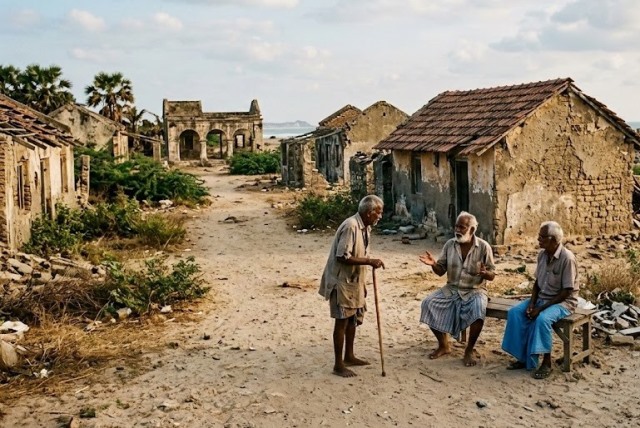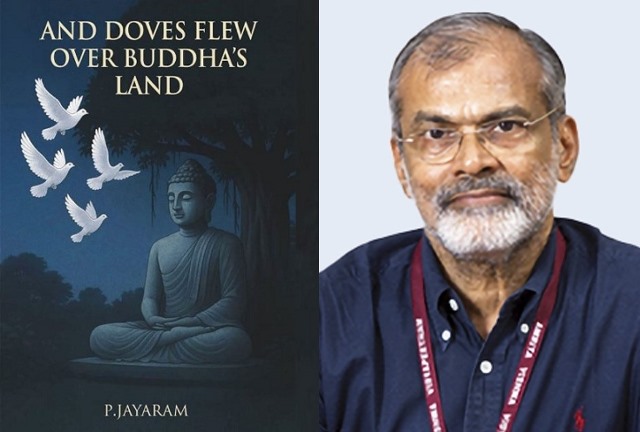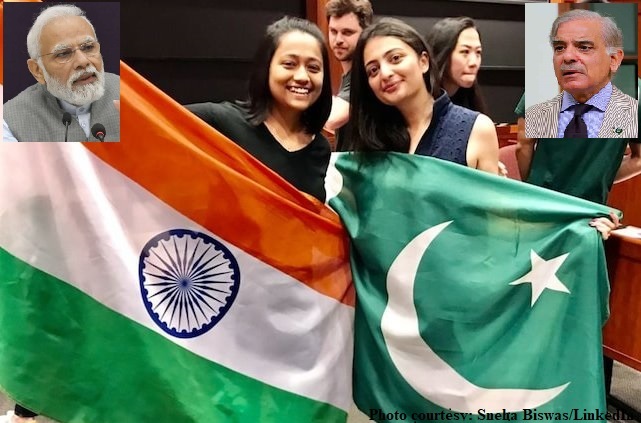
Why Peace Remains Elusive In Indo-Pak Relations
On Shaheed Bhagat Singh’s 115th birth anniversary last week, his life and death for an undivided India’s freedom, and that he is revered on both sides of the India-Pakistan divide were recalled. But save such sentiments shared by minuscule sections, little is left to work on building good-neighbourly relations.
One people for centuries, they became two adversarial ‘sides’ 75 years ago. Separation resolved nothing; it only deepened the crevices. Unwilling to forget the past, and unable to deal with the present, they are trapped in a cul-de-sac and unable to move forward to that goal.
The sad thing is that once you begin exploring prospects of improving the perennially tense relations, you run into innumerable obstacles and imponderables.
As one sees Pakistan posturing for peaceful ties in diplomatic forums, this is yet another moment. Everyone knows that the current government has neither the mandate nor the pull with the military, to smoke the peace pipe. The all-powerful force where the buck stops is clueless about how to resolve the problems it created by playing favourites, and has conceded space to the squabbling politicians.
Aware that this is the neighbour’s weak moment, India is simply not interested. That has long been its stance. For every Pakistani salvo on Kashmir, India returns the terrorism charge. To every charge of the ‘Hindutva’ campaign, India points to the ill-treatment of Pakistan’s minorities. India’s undeclared goal is to make hay while the sun is not shining on the neighbour.
Social media talks of a contrast. The 4,500-year old drainage system of Mohen Jo Daro in the Indus Valley efficiently disposed of the rain and flood waters when a third of Pakistan was under water. But three Chinese companies gather and dispose of garbage in modern-day Karachi, nicknamed ‘Venice of Sewage’.
What about the flooding of Mumbai, Delhi, Chennai, and other Indian cities? Actually, we are sailing in the same boat that is stuck in sewage. Climate change is hurting both, but they are bogged down in old, divisive issues, unable to discuss such common threats and address them jointly.
Amidst constant diplomatic wrangling, there’s a déjà vu. Like it did in the 1980s, India has protested the $450 million US dole to Pakistan for the “sustainment and support” of the F-16 combat aircraft. It did not work then and it is unlikely to work now.
The sale in that Cold War era was meant to shore up Pakistan’s defences against India. That fig leaf is not available in the radically changed geopolitical situation. Instead, Washington now insists that the aircraft are meant for counter-terrorism. India’s S Jaishankar said: “At the end of the day, for someone to say I am doing it because it is for counterterrorism when you are talking of an aircraft of the capability of an F-16, everyone knows where they are deployed, what is its use, what is its capability. You are not fooling anybody by saying these things.”
Does Anthony Blinken really believe what he says? With changed equations, India sees itself as a bigger US ally, but the latter has always drawn the line at the India-Pakistan border. India is an ally against China only in East and Southeast Asia. That is unlikely to change since the US continues to woo Pakistan to keep it away from China.
ALSO READ: Naya Pakistan, Old Script, Chronic Crisis
Diplomacy can be brazen. Both India and Pakistan must now await its subtle strokes. Like earlier American administrations, particularly the Democratic one, Biden also wants India and Pakistan to talk. But the two are in no mood. In anticipation of this, like two boxers in the ring hitting out before the bell rings, there was no ‘adaab’ from Shehbaz Sharif, nor an extended hand from Narendra Modi at the recent Shanghai Cooperation Organisation summit. Unsurprisingly, while the two committed themselves to peace, the Kashmir-versus-terrorism drill also played out at the UN General Assembly.
India’s approach has unanimity – the political opposition is afraid to even utter the word Pakistan for fear of annoying the ultra-nationalists. Pakistan’s stance is also well-calibrated. Shehbaz listed Kashmir as the Number One issue — he can’t afford to miss. His brother Nawaz suffered when he skipped it at Sharm el-Sheikh in 2009.
Foreign Minister Bilawal Bhutto Zardari told a French TV network that India had not helped in fighting floods, “nor was there any expectation.” Surely, Modi telephoned Shehbaz to empathize but did not offer any help the way India does to countries far and near that are hit by natural calamities.
Doubly assuming that the offer was made and Pakistan accepted, it would have caused controversies. Modi would have been accused of feeding the ‘enemy’. Shehbaz had to be careful. Damned for having ‘surrendered’ to a “Hindutva driven” India, he would have gifted a missile to Imran Khan, who wants a snap poll, whatever happens to Pakistan. He has added ‘war’ to his set of issues that would not deter his campaign. War against whom?
There are always “fringe elements” thriving with official or tacit support from the powerful. Amidst global appeals for help and inviting the likes of UN Secretary-General and Angelina Jolie, tomatoes imported from Iran were destroyed by Sunni militants, in full public view, because they were ‘Shia’ produce.
Like ‘fringe’ elements in India shouting “go to Pakistan” to anyone they disagree with, the India angle is strong in Pakistan as well. Imran Khan – and he is not a “fringe element” – playing to the political gallery, has accused the Sharifs of trying to reach “a secret understanding” with India to “promote their business interest.”
Khan and Pakistan’s elite with farming backgrounds do not appreciate this, but there is something about the Sharifs that Indians find easier to work with. The Lahore summit and the unscheduled Modi visit at a Sharif event in 2015 indicate this.
How does one talk trade when that word is anathema? Pakistan Army chief General Javed Bajwa does not say it anymore. In March 2021, he stirred a debate by stressing geo-economics. Among other things, the “Bajwa Doctrine” recommended restoring peace within by putting down various internal insurgencies, reviving economic growth, and reconciling with the neighbours. Analysts thought this was a radical change in the Pakistan Army’s stance. Taking the cue, the commerce ministry decided to resume trade with India.
But the Khan Government annulled it. Sections of the business community saw a win-win situation in bilateral trade, even working to Pakistan’s advantage. But they have been ignored. Nobody in Pakistan has bothered to explain why the “Bajwa Doctrine” was junked, and India couldn’t care less.
Last but not the least, both have electoral compulsions – there will always be. Politicians on both sides indulge in this profitable pastime in the name of democracy, despite Covid, calamities, and constraints on the economy. And ‘war’, if you note Imran Khan’s resolve.
One of Pakistan’s most perceptive writers, F S Aijazuddin, writes: “… the funeral of the late Queen Elizabeth II has caused many to marvel at the plans made for it years in advance. That is not unusual. Pakistani politicians, too, have been planning each other’s funerals for years.” Isn’t it the same, across South Asia?
The writer can be reached at mahendraved07@gmail.com
